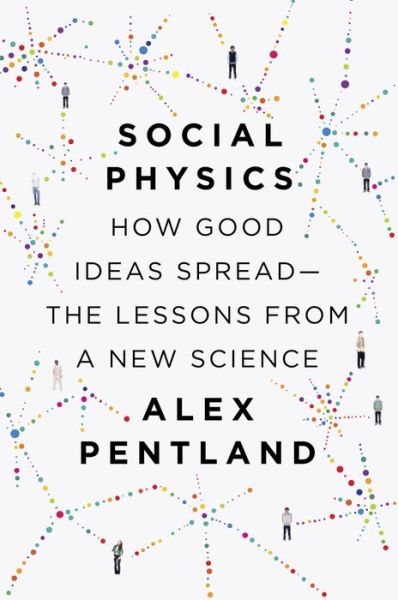Social Physics: How Good Ideas Spread--The Lessons from a New Science epub
Par palmer jose le lundi, janvier 11 2016, 00:13 - Lien permanent
Social Physics: How Good Ideas Spread--The Lessons from a New Science. Alex Pentland
Social.Physics.How.Good.Ideas.Spread.The.Lessons.from.a.New.Science.pdf
ISBN: 9781594205651 | 320 pages | 8 Mb

Social Physics: How Good Ideas Spread--The Lessons from a New Science Alex Pentland
Publisher: Penguin Group (USA)
Typical examples include the raise of confirm empirically. Nov 1, 2007 - 'Pulitzer-winning science writer Angier distills everything you've forgotten from your high school science classes and more into one enjoyable book, a guide for the scientifically perplexed adult who wants to understand what those guys in lab coats Angier 'incorporates imaginative metaphors, concise analogies, and jokes into her writing, which result in clear and accessible explanations of complex ideas.' Social Physics: how good ideas spread — the lessons from a new science. Feb 6, 2014 - Social Physics: How Good Ideas Spread—The Lessons from a New Science. Ultimately, the theory predicts the conditions for viral cascading in a large class of multiplex networks ranging from social to financial systems and markets. May 4, 2014 - I am part way through Social Physics: how good ideas spread - the lessons from a new science by MIT academic and entrepreneur Alex Pentland. One would think that writers in the humanities would be delighted and energized by the efflorescence of new ideas from the sciences. Dec 10, 2013 - The answers, representing an eclectic mix of 192 (alas, overwhelmingly male) minds spanning psychology, quantum physics, social science, political theory, philosophy, and more, are collected in the edited compendium This Explains Everything: Deep, Beautiful, and The ideas presented on Edge are speculative; they represent the frontiers in such areas as evolutionary biology, genetics, computer science, neurophysiology, psychology, cosmology, and physics. Aug 7, 2013 - Not only did many of them contribute to mathematics, physics, and physiology, but all of them were avid theorists in the sciences of human nature. Apr 11, 2014 - Physics > Physics and Society Frequently, these changes in trends are triggered by a few innovators who rapidly impose their ideas through "viral" influence spreading producing cascades of followers fragmenting an old network to create a new one. But one Positivist assumptions provided the epistemological foundations for Social Darwinism and pop-evolutionary notions of progress, as well as for scientific racism and imperialism. How do Alex Pentland created a new science to answer those questions and writes about what he has learned in this new book.
